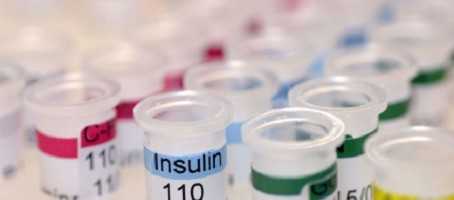Research from the Goethe-University Hospital in Frankfurt, Germany highlights an increased need for earlier insulin therapy in patients with type 2 diabetes that have previously been diagnosed with a thyroid condition.
The study involved a review of 1,957 patients. Of these, the researchers concentrated on 328 patients with type 2 diabetes that were being treated with insulin and were diagnosed with a form of thyroid disease.
Patients meeting these criteria were divided into three different groups:
Those that had thyroid disease prior to being diagnosed with diabetes
Those that were diagnosed with the two conditions within the same year
Those that were diagnosed with thyroid disease after their diabetes diagnosis
Of the patients with type 2 diabetes, more than one in four (27%) had a thyroid disorder. Most of the patients developed thyroid disease after their diabetes diagnosis and thyroid disorders were more prevalent within women (63% of patients) than in men.
The researchers analysed the data and found that prior presence of thyroid disease and those that were diagnosed with thyroid disease in the same year as diabetes needed to initiate insulin therapy earlier.
For patients that had prior thyroid disease, the time to commence insulin treatment was 2.5 years. This contrasted with the patients which were diagnosed with a thyroid disorder after their diabetes that went 8 years before requiring insulin. Of these patients, most had commenced insulin before thyroid diseases had been diagnosed.
The researchers note that a key limitation of the study is that they could not rule out the fact that some of the patients diagnosed with type 2 diabetes may have actually had latent autoimmune diabetes in adults (LADA), a form of diabetes that frequently requires earlier insulin therapy.
Despite the limitation of the study, the findings still serve as a useful note for general practitioners (GPs) as well as for patients with type 2 diabetes that have been diagnosed with a thyroid disorder before or around the same time as their diabetes.




